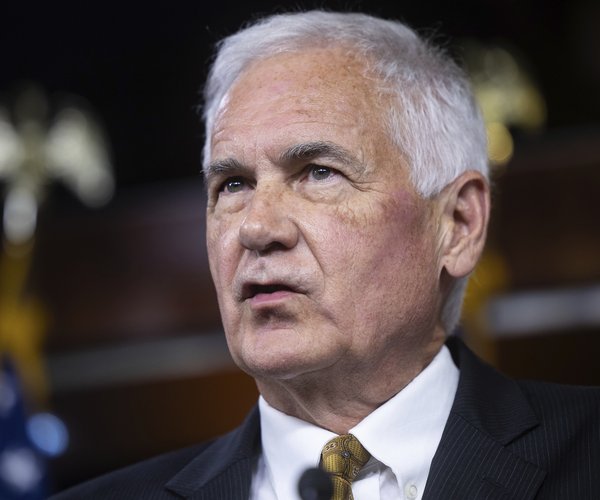Taxpayers don't look at taxes the way the people who spend the tax money do. Take the battle over the extension of the "Bush tax cuts." Americans to Washington: They were tax cuts in 2001 and 2003. If Washington allows all or parts of the "Bush tax cuts" to expire at the end of the year, the result won't be to not cut taxes, as Beltway lingo and President Obama suggest, but to raise taxes.As pollster Scott Rasmussen reported earlier this month, 56 percent of mainstream voters favor extending the Bush tax rates for all Americans, while 60 percent of those in the political class would extend the tax cuts for everyone except families earning more than $250,000 a year.Not so for the boys of Obamaland's "Recovery Summer." They've set up this phony construct that spending more taxpayer money while taxing the rich will save the economy.New York Times columnist Paul Krugman laid out the situation as a choice between (a) "asking the richest 2 percent or so of Americans to go back to paying the tax rates they paid during the Clinton-era boom" and (b) "allowing the nation's foundations to crumble."But I think Karl Rove got it right when he wrote in his recent book, "Courage and Consequence," that many Democrats "would rather have high taxes and a lower standard of living than low taxes and a higher standard of living."Treasury Secretary Timothy Geithner favors extending the Bush tax cuts for most Americans, but opposes a temporary extension for top earners, as it "would hurt economic recovery by undermining confidence that we are prepared to make a commitment today to bring down our future deficits."You have to feel for Geithner. The Treasury secretary was not exactly the quickest draw when it came to paying his own taxes. Now he is in the uncomfortable position of advocating a risky tax increase because it's his only (somewhat) popular option.He must know that to put off raising taxes on the rich for one year would add $36 billion — peanuts in his circle — to the deficit. It's not going to close the gaping hole, but it could scare private-sector employers who are considering hiring. Especially when there are whispers from Washington that Obama is drafting another huge economic stimulus package.I don't have the knee-jerk reaction against ending some of the Bush tax cuts that many Republicans have. For one thing, rich people elected Obama, so let them pay higher taxes. Besides, elections have consequences, and voters need to feel those consequences. (The Bush-era deficits, with increased government spending and lower taxes, allowed people to have it both ways for too long.)But this is no time to be pure. With the new jobless numbers out and the economic recovery teetering, this is simply the wrong time to raise taxes. The smart move for Obama would be to announce that he'll start raising taxes when the economy shapes up, stop proposing stimulus packages because they don't create private-sector jobs and stick to that plan. That would rally the country.And while he's at it and Democrats are talking about the need for sacrifice, maybe when the economy's strength revives, they could look beyond squeezing the rich and instead begin trimming some of those odious "Bush tax cuts" for the middle class. Geithner says it's irresponsible to let the Bush tax rates continue, as that adds $700 billion to the deficit over 10 years. Well, what about the middle-class part of the package? It adds $2.4 trillion to the deficit.Meanwhile, Republican talk-show hosts are in la-la land. They keep talking about the magic of the Reagan tax cuts. It's time to start living in the present, guys. Last year's annual deficit was $1.4 trillion. If you cut taxes but you don't cut spending, you make the debt bigger.For my part, I don't want to hear another conservative pundit call for more tax cuts until there's a closure of the gap between what Washington takes in and what it promises and spends. If that day never comes, well, someone has to pay for the party.Rep. Paul Ryan of Wisconsin stands out as the rare Republican willing to challenge the Democrats' "culture of dependency" by proposing painful cuts on Social Security, Medicare and Medicaid spending. He, at least, is willing to tell the middle class that entitlement spending is "unsustainable." Ryan is the adult in this room.As David Walker, head of the Peter G. Peterson Foundation and former U.S. controller, told the San Francisco Chronicle's Carolyn Lochhead last week, "If you eliminated all the Bush tax cuts, if you withdrew from Iraq and Afghanistan tomorrow, if you eliminated foreign aid, and if you eliminated all spending associated with congressional earmarks — the populist things — it's about 15 percent of the problem."Democrats can't claim to be the fiscally responsible party if they keep proposing to raise spending on the backs of just 2 percent of the population. That, too, is "unsustainable."— E-mail Debra J. Saunders at dsaunders@sfchronicle.com.
Real tax increases, real consequences
BY DEBRA J. SAUNDERS






